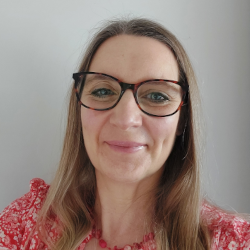Sue Edwards - On the Front Line
How did you get started in careers?
I was working in schools and I noticed that careers education just wasn’t hitting the spot - it wasn't meeting the needs of many young people, especially the ones from less-advantaged backgrounds. I became interested in how guidance could be more equitable and empowering. That led me into formal guidance roles, then into leadership. Across every setting, the question I keep asking is: how can we make this fairer?
What’s your current role?
Head of Careers and Employability at the University of Westminster. I lead a team of professionals delivering guidance, employer engagement, and employability initiatives across our diverse student body. A big part of my role is embedding careers work across the curriculum. I work closely with academic departments ensuring everything we do aligns with social mobility goals. And I also stay close to delivery because I believe in visible leadership and co-creating solutions with students and staff.
What motivates your work?
Fairness. I was one of those students who didn’t get much guidance, and I know how limiting that can be. I'm also motivated by the idea of careers as a public good -something every student, regardless of background, should have access to. At Westminster, we serve a highly diverse cohort, and our work isn't "extra" - it's essential.
What’s your leadership philosophy?
Kindness and courage. I believe in leadership that's open, ethical, and radically human. That means backing my team, challenging systems that don't serve students, and staying aligned with our mission. It also means naming things like structural inequality, racism, and classism. We can't do equity work in careers unless we're willing to talk about what gets in the way.
What has been a turning point in your career?
Getting involved with AGCAS and collaborative networks. It helped me see how our sector can influence policy, share best practice, and support one another through change. Another turning point was realising that wellbeing and employability are not separate. When students are struggling - financially, mentally, socially - it impacts their career journey. That insight has shaped how I build services that are holistic, trauma-aware, and genuinely inclusive.
Favourite career development theories?
I connect with Planned Happenstance, because it reflects the messiness of life. I also value Social Cognitive Career Theory for its insight into self-efficacy and how people build belief in themselves. Finally, Community Cultural Wealth is a key framework for me, as I love how it reframes student strengths outside of the dominant, white, middle-class lens.
Who or what has influenced you?
My students, always. But also, colleagues across the sector who model integrity, creativity, and care. I’m inspired by people who hold systems to account while still finding joy in the work. And my team - they remind me every day why this work matters.
What does a typical day look like?
My day might include strategic meetings with university leaders, reviewing impact data and service design, supporting team members, or planning partnerships with employers or academics. But it also includes taking time to reflect and recalibrate - leadership needs space too.
Key learning points?
My key learning points are to listen more than you speak, to say what needs to be said - especially when equity is at stake - and to remember that you don’t have to know everything; just create space for others to shine.
Advice for new CDPs?
Stay curious and don’t underestimate the impact of one conversation. Find your people because this sector can be isolating, but it doesn’t have to be. Most importantly, trust that you bring something to this role that no one else does.
Final reflections?
Careers work is about hope. It’s about possibility, choice, and belonging. And when we do it with care, integrity, and courage, it changes lives.
